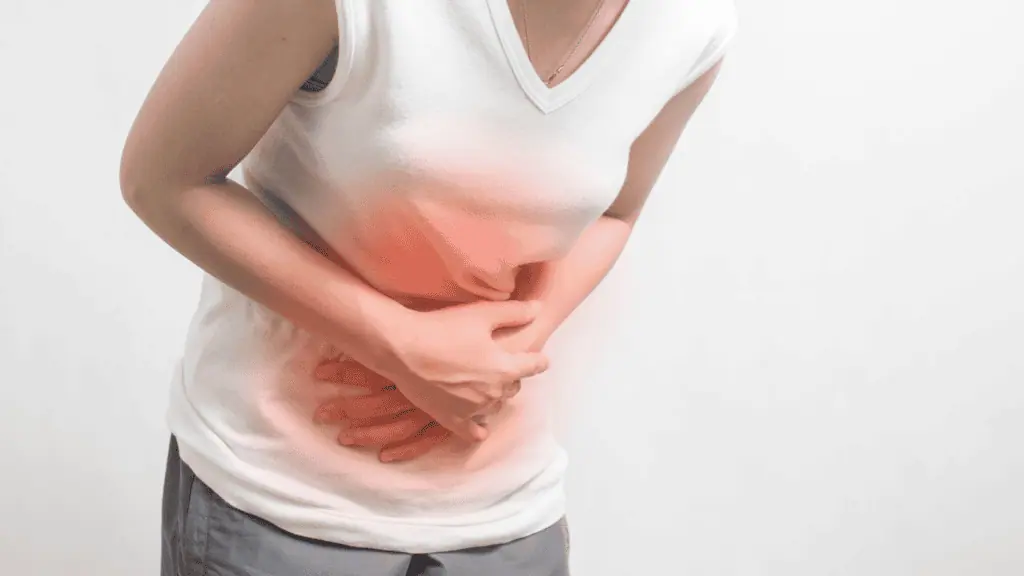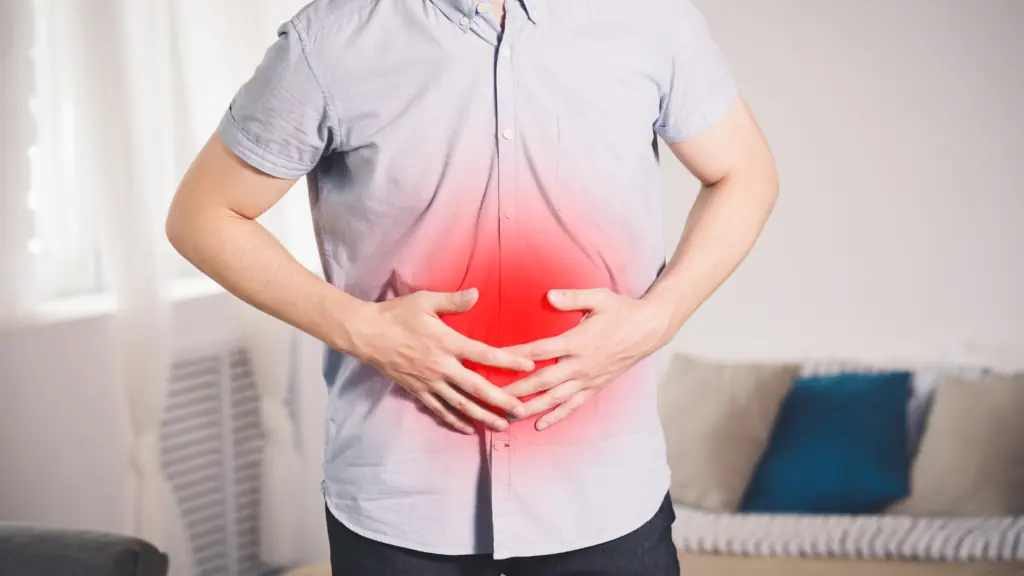
Have you ever experienced that uncomfortable, sometimes downright painful sensation in your belly? You’re not alone! Stomach pain is something we all deal with from time to time, and it can really throw a wrench in our day. But here’s the thing: understanding what’s causing that discomfort is the first step to finding relief.
In this article, we’re going to explore nine common causes of stomach pain and, more importantly, what you can do about them. So, let’s dive in and demystify those tummy troubles!
1. Indigestion
We’ve all been there – you finish a delicious meal, and suddenly your stomach feels like it’s doing somersaults. That’s indigestion, my friend, and it’s one of the most common causes of stomach discomfort.
What’s going on? Indigestion, also known as dyspepsia, happens when your digestive system struggles to break down food. This can lead to feelings of fullness, bloating, nausea, and even pain in your upper abdomen.
How to treat it: The good news is that indigestion often resolves on its own. But if you want to speed things up, try:
- Eating smaller meals more frequently
- Avoiding trigger foods (spicy, fatty, or acidic foods are common culprits)
- Chewing your food slowly and thoroughly
- Limiting alcohol and caffeine intake
- Taking over-the-counter antacids for quick relief
Remember, prevention is better than cure. Pay attention to what you eat and how you eat it. Your stomach will thank you!
2. Gastroesophageal Reflux Disease (GERD)
Ever feel a burning sensation in your chest after eating? That could be acid reflux, and if it happens regularly, you might be dealing with GERD.
What’s going on? GERD occurs when stomach acid frequently flows back into your esophagus. This backwash (reflux) can irritate the lining of your esophagus, causing that uncomfortable burning feeling.
How to treat it:
- Elevate your head while sleeping to prevent acid from flowing back
- Avoid lying down right after meals
- Steer clear of trigger foods like chocolate, coffee, and spicy or fatty foods
- Lose weight if you’re overweight
- Quit smoking if you’re a smoker
- Try over-the-counter antacids or H2 blockers
If symptoms persist, don’t hesitate to talk to your doctor. They might prescribe stronger medications or suggest lifestyle changes to manage GERD effectively.
3. Food Intolerance
Sometimes, your stomach pain might be your body’s way of saying, “Hey, I don’t like that food!” This is what we call food intolerance.
What’s going on? Food intolerance occurs when your body has difficulty digesting certain foods. It’s different from a food allergy, which involves your immune system. Common intolerances include lactose (found in dairy) and gluten (found in wheat and some other grains).
How to treat it:
- Keep a food diary to identify trigger foods
- Try an elimination diet under the guidance of a healthcare professional
- Consider enzyme supplements (like lactase for lactose intolerance)
- Explore alternative foods (like lactose-free milk or gluten-free bread)
Remember, everyone’s body is different. What triggers discomfort in you might be perfectly fine for someone else. Listen to your body and give it the foods that make it feel good!
4. Irritable Bowel Syndrome (IBS)
IBS is a common disorder that affects the large intestine. If you’re experiencing recurring stomach pain along with changes in bowel habits, IBS might be the culprit.
What’s going on? The exact cause of IBS isn’t known, but factors like muscle contractions in the intestine, severe infection, stress, and changes in the microbes in the gut can play a role.
How to treat it: While there’s no one-size-fits-all treatment for IBS, these strategies can help:
- Manage stress through relaxation techniques or therapy
- Try the low FODMAP diet (a special diet that eliminates certain hard-to-digest carbs)
- Increase fiber intake gradually
- Stay hydrated
- Exercise regularly
- Consider probiotics to support gut health
Remember, IBS is a chronic condition, but with proper management, you can reduce symptoms and improve your quality of life.
5. Gastritis
If you’re feeling a gnawing or burning pain in your upper abdomen, you might be dealing with gastritis.
What’s going on? Gastritis is inflammation of your stomach lining. It can be caused by excessive alcohol use, chronic vomiting, stress, or certain medications like aspirin or other anti-inflammatory drugs.
How to treat it:
- Avoid foods and drinks that irritate your stomach, like spicy, acidic, or fatty foods
- Eat smaller, more frequent meals
- Limit or avoid alcohol
- Consider stopping smoking if you’re a smoker
- Try over-the-counter antacids or acid blockers
- Manage stress through relaxation techniques
If symptoms persist or worsen, it’s important to see your doctor. They might prescribe medications to reduce stomach acid and protect your stomach lining.
6. Constipation
We’ve all experienced it at some point – that uncomfortable, bloated feeling when you can’t “go.” Constipation is a common cause of stomach discomfort and pain.
What’s going on? Constipation occurs when your bowel movements become less frequent and stools become difficult to pass. It can be caused by a low-fiber diet, dehydration, lack of physical activity, certain medications, or changes in routine.
How to treat it:
- Increase your fiber intake (think fruits, vegetables, whole grains)
- Stay hydrated by drinking plenty of water
- Exercise regularly to stimulate bowel movements
- Don’t ignore the urge to go to the bathroom
- Try over-the-counter laxatives, but use them sparingly
- Consider adding a probiotic to your diet
Remember, everyone’s “normal” is different when it comes to bowel movements. But if you’re experiencing pain, bloating, or haven’t had a bowel movement in several days, it’s time to take action.

7. Food Poisoning
We’ve all been there – you eat something that doesn’t agree with you, and suddenly your stomach is in revolt. That’s food poisoning, and it’s no fun at all.
What’s going on? Food poisoning occurs when you consume food contaminated with bacteria, viruses, or parasites. Symptoms can include nausea, vomiting, diarrhea, and abdominal pain.
How to treat it:
- Rest and let your stomach settle
- Stay hydrated with water, clear broths, or electrolyte solutions
- Ease back into eating with bland, easy-to-digest foods (think bananas, rice, applesauce, and toast – the BRAT diet)
- Avoid dairy products, caffeine, alcohol, and fatty or spicy foods until you’re feeling better
Most cases of food poisoning resolve on their own within a few days. However, if symptoms are severe or persist, don’t hesitate to see your doctor.
8. Stress and Anxiety
Did you know that your brain and your gut are constantly communicating? That’s why stress and anxiety can sometimes manifest as stomach pain.
What’s going on? When you’re stressed or anxious, your body goes into “fight or flight” mode. This can slow digestion, cause muscle tension in your abdomen, and even increase stomach acid production.
How to treat it:
- Practice stress-reduction techniques like deep breathing, meditation, or yoga
- Get regular exercise
- Ensure you’re getting enough sleep
- Consider talking to a therapist or counselor
- Try progressive muscle relaxation
- Explore mindfulness practices
Remember, taking care of your mental health is just as important as taking care of your physical health. They’re more connected than you might think!
9. Appendicitis
While less common than the other causes we’ve discussed, appendicitis is a serious condition that requires immediate medical attention.
What’s going on? Appendicitis is inflammation of the appendix, a finger-shaped pouch that projects from your colon. If left untreated, an inflamed appendix can rupture, causing a serious, life-threatening infection.
How to recognize it:
- Pain that begins around your navel and then moves to your lower right abdomen
- Pain that worsens if you cough, walk or make other jarring movements
- Nausea and vomiting
- Loss of appetite
- Low-grade fever that may worsen as the illness progresses
- Constipation or diarrhea
- Abdominal bloating
What to do: If you suspect appendicitis, seek medical care immediately. This is not a “wait and see” situation. Appendicitis typically requires surgical removal of the appendix.
Wrapping It Up: Your Action Plan for Stomach Pain
From common issues like indigestion to more serious conditions like appendicitis, stomach pain can have many causes. But here’s the takeaway: you have the power to manage many of these issues and improve your digestive health.
Remember these key points:
- Listen to your body. It’s trying to tell you something!
- Pay attention to what you eat and how you eat it.
- Stay hydrated and get regular exercise.
- Manage stress – your gut will thank you.
- Don’t ignore persistent or severe symptoms. When in doubt, check it out with your doctor.
Your digestive system does a lot for you every day. By understanding these common causes of stomach pain and how to address them, you’re taking a big step towards better health and well-being.
Here’s to happy, healthy tummies! Remember, you’re not alone in this journey. If you’re concerned about persistent stomach pain or any other symptoms, don’t hesitate to reach out to us at EG Healthcare. We’re here to help you feel your best, inside and out!